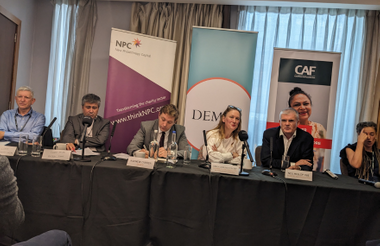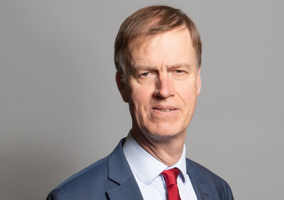Charity sector leaders have urged the new government to renew Britain’s culture of giving to help support communities in the most deprived areas.
In a fringe session at the Labour party conference yesterday, the chief executives of Charities Aid Foundation (CAF) and New Philanthropy Capital (NPC) discussed how philanthropy and the government could support communities and tackle regional inequalities.
CAF’s Neil Heslop told attendees that “no British government has ever really cracked the potential of philanthropy”.
Meanwhile, NPC’s Dan Corry argued that the government must put charities and philanthropy at the heart of its decision-making process to help it deliver its five missions.
‘A tremendous opportunity’
Heslop told attendees that “there’s a tremendous opportunity” to think about philanthropy “very differently now”, given the UK’s “extraordinary economic and social challenges”.
He gave examples of countries such as Australia, Ireland and Singapore that have “reimagined philanthropy”.
“The Australian Labour government has set a target to double philanthropy by 2030 because they fundamentally recognise the relationship between economic development and social cohesion that we all want,” he said.
However, Heslop added: “It’s really important that we never see it as a substitute or replacement for state funding.”
In his speech at last year’s Labour Party conference, Keir Starmer pledged “a decade of national renewal” if he were to become prime minister.
One crucial aspect of that renewal, Heslop said at this year’s event, will be the renewal of “our British culture of giving”.
“In order to do that, there’s a need to be very strategic about how you direct new funding to the places that matter most and can make the greatest difference to some of the most intractable social problems,” he said.
‘We need a shift in funding’
Corry said NPC has long called for a shift in government funding “away from just building new things or tarting up the high street” and investment in programmes that tackle the underlying social needs underpinning social capital.
“We need a fundamental shift in where the support to the social sector is going, both in terms of government and philanthropic funding,” he told attendees.
He quoted a 2020 NPC report which shows there are more registered charities in prosperous areas than in deprived ones, saying this needs to change to help communities and regions that need “a boost”.
“The responsibility of doing that is on philanthropy and grantmakers. They need to think: ‘Where am I putting my money? Is this the right place to be putting my money? Where is the need? Am I putting it in there?’
“Over the last few years, some grantmakers and foundations have thought a bit harder.
“And it’s no good saying: ‘Well, we never get any applications from that deprived area.’ Of course you don’t because nobody’s got capacity to get together and send off a grant application. You’ve got to be active and get out there.”
Involving charities in decision-making
Corry also argued that there is an onus on bigger charities, especially those that have branches in deprived areas, to look at their footprint.
“Obviously, there’s also an onus on government to think about how they do this,” he said. “There’s a number of things that they need to do, and I hope that this government will do.
“One is by letting in charities and philanthropy into the decision-making process around delivering the government’s five missions because a lot of this will come out if you have people from the social sector getting involved in these discussions.
“We think that government should invest in social growth zones, evaluating what’s working.
“Fundamentally, it’s making sure that whatever resource government chooses to put into the sector goes to the areas where it’s most needed. That can be by using match funding to draw in philanthropy to where it’s needed, or, as we’ve argued for rather controversially, regional variations in gift aid.”
Corry also suggested that the government should empower local areas, particularly mayoral devolved authorities.
“Most charities find that the mayors are much more interested in thinking about the assets in their area and how they can use these to solve some of the social problems and get growth in their communities,” he said.
“So, the more power devolved out to them, the more you will get charities and philanthropy involved in the discussions.”
Related articles












